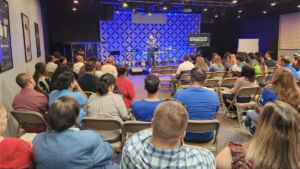We have been talking about this change for years now. However, like most of the legal and financial challenges facing churches, the real focus does not gain attention until the law is applied. Well, it is here and it becomes effective December 1, 2016. Now the question is “What does this mean for churches, associations and ministries?”
Coverage
There are two types of coverage: The FLSA may apply to (1) businesses or similar entities (“enterprise coverage”) or (2) individuals (“individual coverage”). Under enterprise coverage, the FLSA applies to businesses with annual sales or business of at least $500,000. For a non-profit, enterprise coverage applies only to the activities performed for a business purpose (such as operating a gift shop or a bookstore); it does not apply to the organization’s charitable activities that are “not in substantial competition with other businesses.”
Income from contributions and donations (cash or non-cash) used for charitable activities are not counted toward the $500,000 threshold.
Note: There is one exception for types of entities are “named enterprises,” meaning that they are covered by the FLSA regardless of the total of their annual sales or business done or their non-profit status. Churches with Schools and/or preschools are named entrprises. See WHD Fact Sheet #14 for more information.
Under individual coverage, employees may be entitled to FLSA protections if they themselves are “engaged in interstate commerce or in the production of goods for interstate commerce.” For example, an individual is covered if the employee makes or receives interstate telephone calls, ships materials to another state, or transports persons or property to another state. This individual coverage applies even if the employee is not engaging in such activities for a business purpose. For example, if an employee regularly calls an out-of-state store and uses a credit card to purchase food for a nonprofit that provides free meals for the homeless, that employee is protected by the FLSA on an individual basis, even though the non-profit may not be covered as an enterprise.
“The Department of Labor, however, will not assert that an employee who on isolated occasions spends an insubstantial amount of time performing such work is individually covered by the FLSA.”
The changes
For covered individuals, the biggest change is simple. If a person receives gross pay of less than $47,476 a year, they must be paid overtime at a rate of one and a half times their hourly basis for each hour worked in excess of 40 per workweek. It makes no difference if they are paid on a fixed salary or an hourly rate if gross pay for the year is less than the threshold.
There are no changes in the types of duties white-collar employees must perform to be exempt. Only the compensation threshold.
There are a few special considerations in the initial rollout. The Department of Labor is allowing employers to apply nondiscretionary bonuses such as longevity bonuses (merit pay is discretionary) and incentive payments to up to 10% of the new salary threshold. The threshold also will be updated every three years, rising to $51,000 on January 1, 2020.
The total annual compensation requirement for highly compensated employees (HCE) is $134,004. Most churches will not deal with this.
Ministers
Finally, the good news. Ministers remain exempt from the minimum wage and overtime pay requirements. In addition to the white-collar exemption, the courts have created a “ministerial exception” that exempts “clergy” from federal wage and hour laws. This exception is pretty straightforward when applied to traditional “clergy” positions. However, it can become murky when applied to positions not traditionally or clearly associated with “clergy.”
In defining clergy, The Supreme Court of the United States provided some clarification in EEOC v. Hosanna-Tabor Evangelical Lutheran Church. The simple test is based on three points being true. First, the employee is formally commissioned or ordained as a “minister.” Second, the employee did perform “important religious functions” and finally, “non-religious duties, however extensive, did not make a difference.”
Therefore, it’s a good practice to seek assistance from a local attorney when considering these questions and making a final determination about whether any exemptions apply to people within your ministry.
Source: CooperativeProgramResources.org
What the New Overtime Rules Mean to Churches






